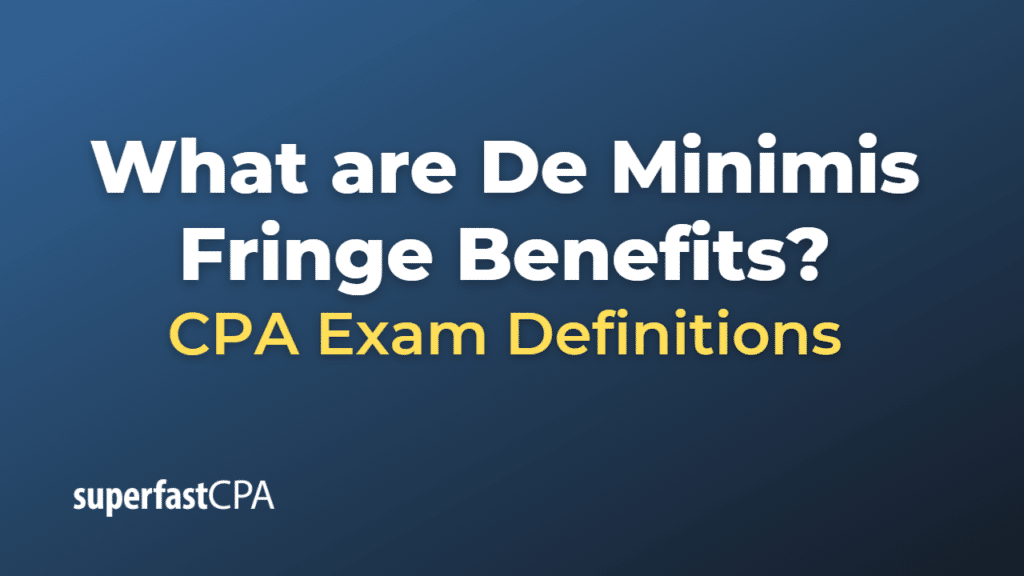De Minimis Fringe Benefits
De minimis fringe benefits are a type of employee benefit that are so small or infrequent that it would be impractical or unreasonable to account for or track for tax purposes. The term “de minimis” is Latin for “about minimal things”.
The IRS in the United States allows employers to exclude de minimis benefits from an employee’s taxable income. The theory is that the accounting cost of keeping track of these benefits would exceed the tax that would be paid on them.
According to the IRS, to qualify as de minimis, a benefit must be occasional or unusual in frequency, and must not be a form of disguised compensation.
Examples of de minimis fringe benefits might include:
- Occasional personal use of a company copy machine, as long as it doesn’t account for a substantial portion of the machine’s use.
- Occasional snacks, coffee, doughnuts, or soft drinks.
- Occasional tickets for theater or sporting events.
- Occasional holiday gifts, birthday or anniversary gifts, or flowers upon a significant event (like the birth of a child), as long as the value is not high.
- Occasional company picnics or parties for employees.
It’s important for businesses to understand what qualifies as a de minimis benefit because while they can be a great way to provide additional perks to employees, businesses must also ensure they are in compliance with IRS guidelines to avoid potential tax consequences.
Example of De Minimis Fringe Benefits
Let’s consider a hypothetical company and its practices:
XYZ Tech Inc. has a diverse, hard-working team. In order to ensure a pleasant working environment and maintain employee morale, the company provides several small benefits:
- Coffee and Snacks: XYZ Tech Inc. has a well-stocked pantry that includes coffee, tea, and occasional snacks like fruit or granola bars. Employees are free to help themselves during the day.
- Holiday Party: Once a year, the company throws a holiday party for all employees. They rent a venue, hire a caterer, and even bring in a live band for entertainment.
- Birthday Celebrations: Whenever an employee has a birthday, the team leader brings in a cake and the team takes a short break to celebrate together.
- Personal use of office equipment: Occasionally, an employee might need to make a few personal copies or send a personal fax. The company allows this, as long as it doesn’t interfere with business operations.
- Company Swag: From time to time, the company orders branded merchandise like t-shirts, water bottles, or notebooks, and distributes them to employees.
These examples would typically qualify as de minimis fringe benefits. They are low in value, occasional, and would be impractical to account for from a tax perspective. As such, they are generally not considered taxable income for the employees. However, as with all tax matters, the specific circumstances can affect the tax treatment, and companies should consult with a tax advisor to ensure compliance with IRS rules.













